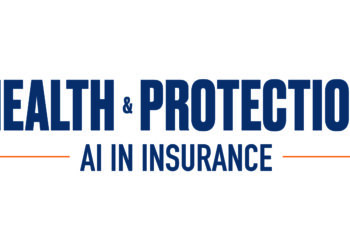Swiss Re technical manager Ron Wheatcroft has called on the chancellor to reduce tax charges on life insurance policies in trust, introduce occupational health initiatives to keep people at work, and remove P11D charges on employee assistance programmes (EAPs).
The calls comprise Wheatcroft’s wish list ahead of chancellor Jeremy Hunt’s Budget tomorrow afternoon.
Making his argument, Wheatcroft (pictured) explained that currently, a discretionary trust that holds one or more pure protection life assurance policies faces possible tax charges – at entry, periodically through its life, and on closure.
“In our view, these charges need to go,” he said.
“They were designed with investments in mind and should have no place when pure protection policies are put into trust. The main reason for doing so is to ensure the policy proceeds are paid promptly at a time when loved ones need them most, not with any investment motives in mind.
“Removing the charges would make for a far simpler system, easing the burden of complexity around potential tax charges currently placed on trustees.
“We calculate that the annual cost of compliance with the Relevant Property Trust regime is approximately £3.1m. In contrast, the maximum amount of tax revenue generated is less than £1m and, in practice, may be no more than half of this figure.”
Wheatcroft argued a simpler system would encourage employers to offer more benefits to workers.
“This could be particularly helpful in encouraging smaller employers, who make up the bulk of the economy, and may otherwise be put off by the prospect of a potential tax liability affecting their business,” he added.
Tackling long-term sickness
Moving on to economic inactivity due to long term sickness, with data today showing this number is now 25 times more than before the pandemic, Wheatcroft added that while commentators talk of encouraging people who have chosen to retire early back to work, sober analysis pointed to long-term sickness as a more likely root cause.
“If the government is serious about improving economic activity, it needs to shift the focus onto keeping people in work and supporting them back into the workplace through vocational rehabilitation and occupational health initiatives, where it makes sense to do so,” he said.
“There are huge opportunities for the insurance industry and central authorities to collaborate on these initiatives. It’s vital for society that we keep focused on this.”
And finally, with EAPs proving a relative cheap solution, starting at as little as around £2.25 per employee, Wheatcroft also called for the removal of all potential P11D charges on these schemes.
“This would involve no cost or loss to the Treasury – as EAPs currently operate in such a way that P11D charges are not incurred – but would enable employers to extend their support for mental health and productivity in the workplace,” Wheatcroft continued.
“This issue is even more pertinent with the great resignation and current cost-of-living issues having exacerbated mental health conditions and relationship difficulties for many.”






